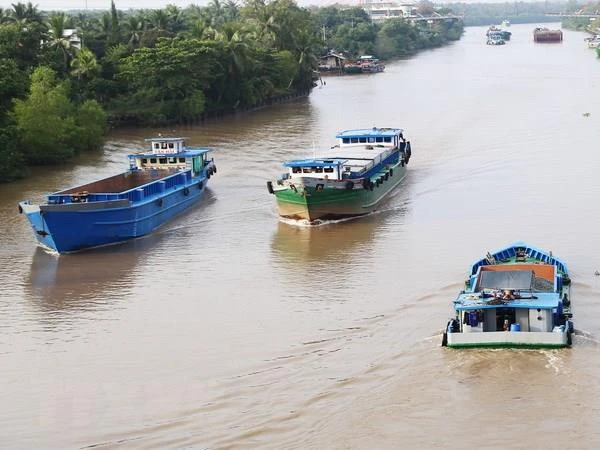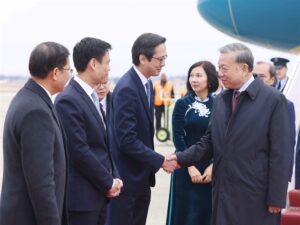World Bank Approves $107 Million Credit to Enhance Inland Waterways in Việt Nam

Hanoi, The Gulf Observer: The World Bank has approved a US$107 million credit to improve the capacity, efficiency, and safety of inland waterways in southern Việt Nam, with the additional goal of reducing greenhouse gas emissions in the transport sector.
The newly approved Southern Region Waterways and Logistics Corridor Development Project aims to increase freight traffic and decrease travel time on crucial east-west and north-south transport corridors. This project will connect key production hubs with Việt Nam’s major deep-water port, thereby boosting export competitiveness.
Mariam Sherman, World Bank Country Director for Việt Nam, Cambodia, and Laos, emphasized the potential of Việt Nam’s southern region waterways as a cheaper, greener, and safer mode of transport. “This project directly supports Việt Nam’s ambitious goals of enhancing inland waterway transport competitiveness, reducing carbon emissions in the transport sector, and boosting the country’s trade competitiveness,” Sherman stated.
Upgrading the east-west transport corridor is expected to reduce the transport distance by approximately 30 percent between the Mekong Delta’s largest port in Cần Thơ and Việt Nam’s busiest port in Ho Chi Minh City. Improvements to the north-south transport corridor will directly connect the Mekong Delta and the hinterland with Việt Nam’s primary deep-water port, facilitating international trade, reducing emissions, and lowering logistics costs.
The project will also support the installation of navigation aids and the improvement of sharp bends on the waterway, enhancing safety.
The World Bank’s 2022 Country Climate and Development Report for Việt Nam identifies the promotion of inland waterway transport as one of the most impactful measures to reduce greenhouse gas emissions in the transport sector. Road freight, which accounts for about 80 percent of greenhouse gas emissions in the transport sector, emits six times more carbon than waterway transport, highlighting the significance of this shift.
The Mekong Delta is a key region for Việt Nam, leading the country in agricultural production and aquaculture for both domestic consumption and export. The development of this project is crucial for enhancing the region’s connectivity and overall economic competitiveness.


